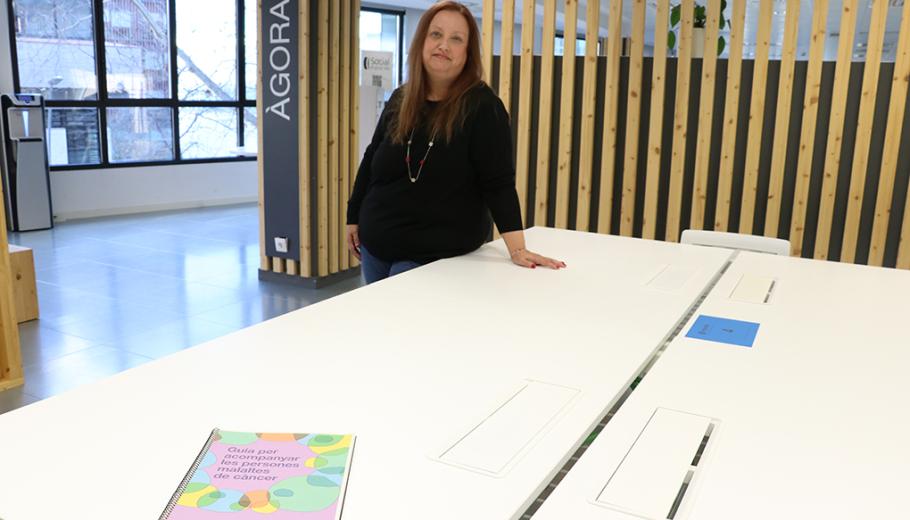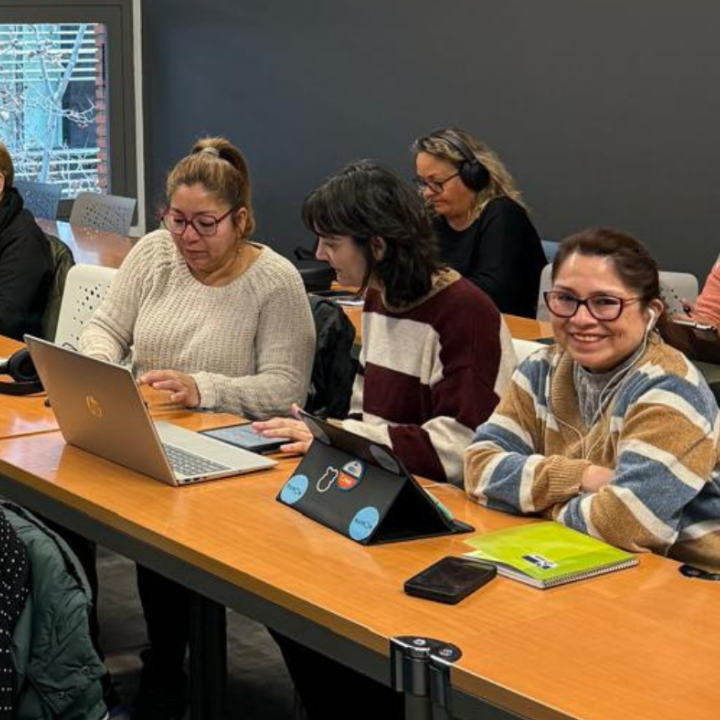On February 4th, the world observes World Cancer Day, a disease that has a profound impact not only on personal lives but also on professional careers. At Suara Cooperativa, our commitment to people extends beyond the services we provide to society—it also includes the well-being of our cooperative members and employees.
In Catalonia, nearly 42,000 new cancer cases are diagnosed each year, significantly affecting both patients and their surroundings. Among men, the most common types of cancer are prostate, colorectal, and lung cancer, while for women, breast cancer is the most frequent, followed by colorectal and lung cancer. These statistics highlight the need for resources and tools to provide proper support for those facing cancer, both personally and professionally.
At Suara, care is not limited to the service users—we also prioritize the well-being of our professionals across all areas of expertise within the cooperative. One of the clearest ways we demonstrate this commitment is through our support for employees diagnosed with cancer.
Facing this illness is not only a medical and personal challenge but also a workplace concern. That is why it is essential for professionals to have a work environment that provides support, flexibility, and tools to ease both treatment and the return to work afterward.
To address this need, Suara Cooperativa has developed the Guide to Supporting Employees with Cancer, a resource offering guidance to employees, their supervisors, and colleagues. Created within the organization, this guide is based on collective experience and knowledge, with the goal of fostering a compassionate workplace that breaks stigmas and facilitates a respectful, gradual return to normality.
What does the guide include?
One of the key aspects of the guide is the importance of open and respectful communication within the team. Often, uncertainty about how to address a sensitive topic like cancer can lead, despite good intentions, to awkward silences or inappropriate attitudes toward a colleague facing the illness. The guide provides recommendations on how to initiate empathetic conversations, offer support without overstepping personal boundaries, and create a workplace where the affected employee feels both accompanied and respected in their choices and needs. The decision on how they wish to be supported should be led by the person diagnosed, with clear agreements established with their supervisor and colleagues.
Another crucial aspect is workplace flexibility. Suara promotes adapting schedules and tasks to the needs of employees undergoing treatment, offering options such as remote work, reduced hours, or task redistribution. These measures allow professionals to maintain a balance between their health and work, reducing the added stress of job insecurity or the need for extended sick leave.
Gradual Reintegration & Breaking Stigmas
Returning to work after cancer treatment is a complex process, both physically and emotionally. The guide proposes strategies to ensure a smooth transition back to work, creating dialogue spaces with teams to support a progressive and tailored reintegration. It also emphasizes the importance of eliminating biases and stereotypes that may affect career opportunities.
The ultimate goal of the Guide to Supporting Employees with Cancer is to foster an organizational culture based on respect, solidarity, and mutual care. Suara Cooperativa aims to be a benchmark in creating workplaces where health and well-being are top priorities.
Through this initiative, we reaffirm our commitment: no one should face illness alone. At Suara Cooperativa, we believe that caring for people is essential to building a more humane, empathetic, and supportive workplace.
Elena Polanco Duran
Talent Technique of the People area





